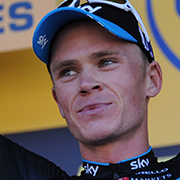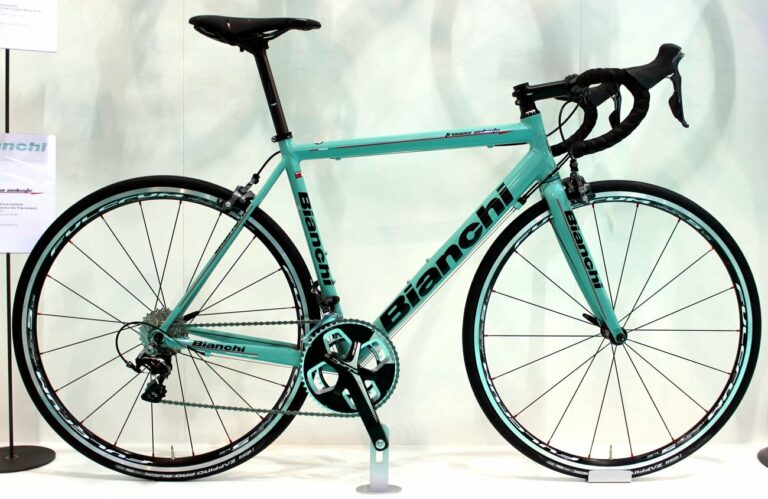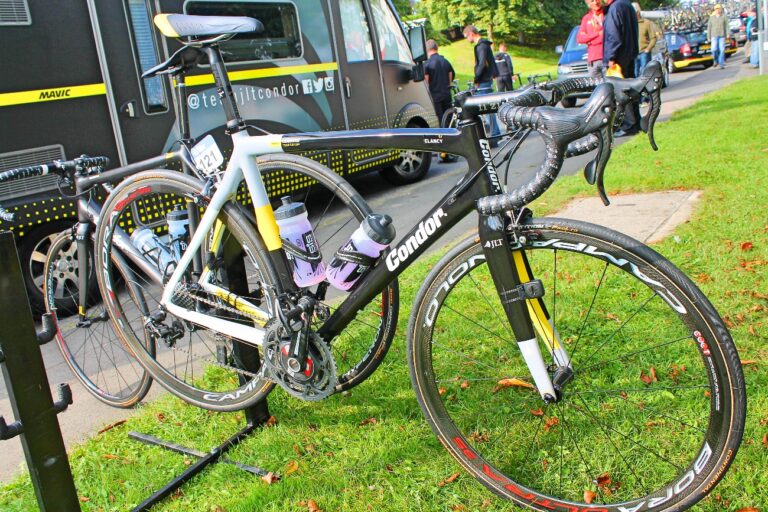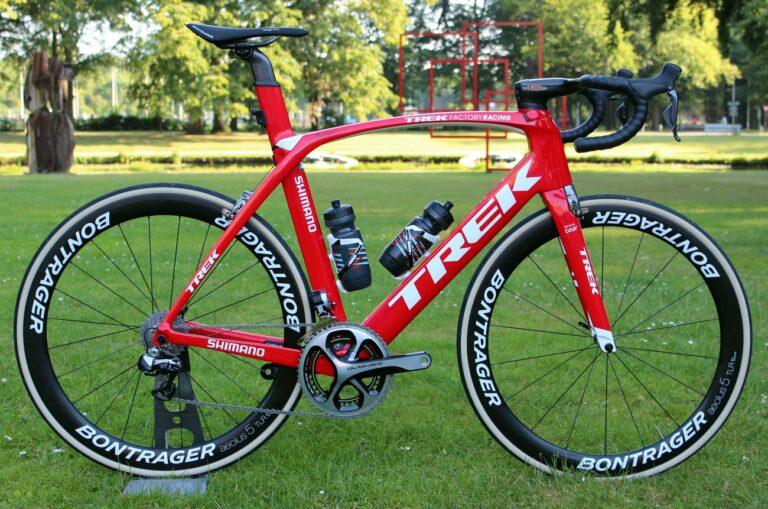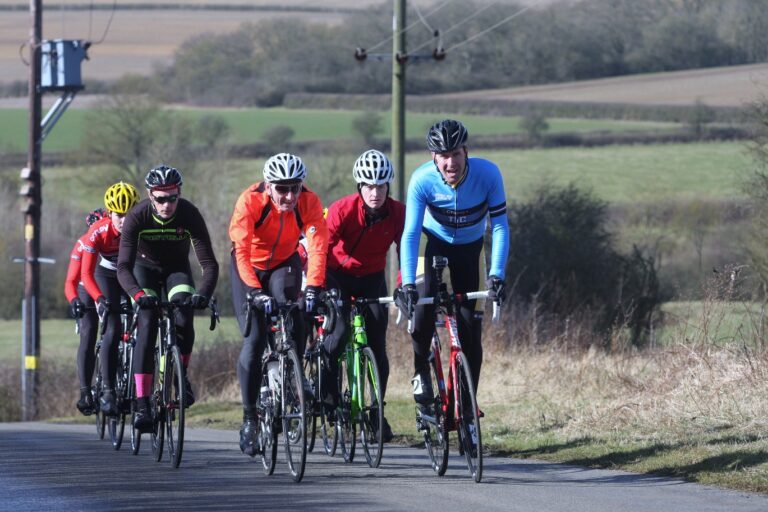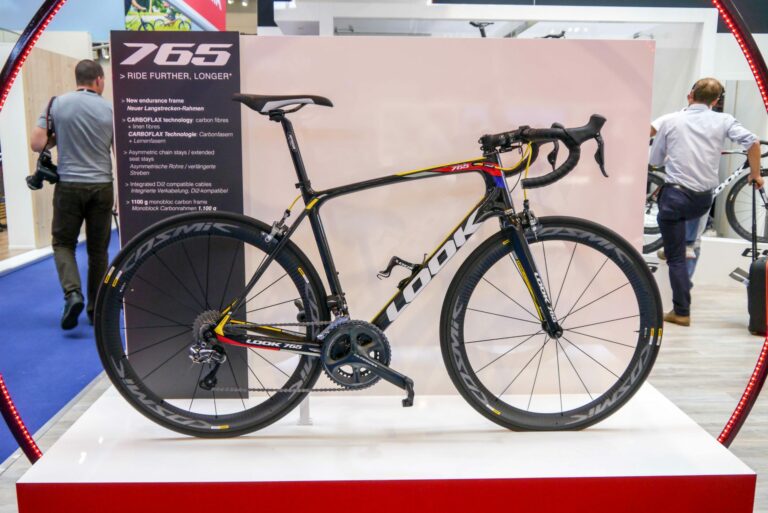Chris Froome pulled on a yellow jersey at the Tour de France for the first time on July 6 2013, when he triumphed on stage eight of a race he would go on to win overall – but Froome’s Tour journey started two decades earlier, when he pulled on the maillot jaune as a teenager in his native Kenya.
“A friend had got it [a replica yellow jersey] from a second-hand market, knowing I was a fierce cycling fan, and had bought it cheaply to sell to me,” recalls David Kinjah, the Kenyan cyclist and coach who helped launch Froome’s career. “Chris had just come back from South Africa, where he was already going to school, and he was telling me all the stories, about how good the cycling was there, how excited he was by it all, and that he had won a few junior races. So I gave him the jersey as a present and a pair of shoes and I said to him ‘maybe one day, you will understand what the yellow jersey is’.
“I don’t know if he remembers that but many years later, seeing him wearing the official yellow jersey in the Tour de France brought back many memories to me. To see him win the Tour de France, that’s something that will never be forgotten.”

Having won the race for the first time in 2013, Froome secured his second Tour triumph last month when he topped the podium ahead of Nairo Quintana and Alejandro Valverde and now – with the final Grand Tour of the season, the Vuelta a Espana, underway – the Team Sky rider will attempt to become only the third rider in history to do the Tour-Vuelta double.
But Froome’s journey started in Kenya at a time when the dreadlocked Kinjah, himself one of Kenya’s most successful cyclists and speaking to RoadCyclingUK ahead of a bid to break the record for riding from Cairo to Cape Town, was Froome’s mentor.
Froome met Kinjah when the former was a 13-year-old and Kinjah would go on to become Froome’s first inspiration and training partner, with the pair regularly heading into the Kenyan bush on all-day rides. Froome became part of Kinjah’s Safari Simbaz project – which aims to unearth Kenya’s talented young cyclists – and regularly returned to Kenya during holidays while attending school in South Africa to ride with Kinjah as he plotted his unconventional path to the top of the sport. In riding the Tour de France, Froome realised Kinjah’s own dream.
Froome’s early experiences as a cyclist are a world away from how the now 30-year-old ignited the Tour de France on the climb of La Pierre-Saint-Martin last month. In fact, the Tour was barely on the radar of many Kenyans when Froome first started riding. But fast forward to 2015 and African cycling has not only been buoyed by Froome’s success, but that of South African Daryl Impey and the MTN-Qhubeka team. Impey became the first African-born rider to wear the yellow jersey in 2013, with Froome then following him into the maillot jaune jersey days later before going on to win overall, while MTN-Qhubeka’s Eritrean ace Daniel Teklehaimanot became the first black African rider to lead one of the Tour’s classifications after pulling on the polka dot jersey in this year’s race.
“When Chris was a child it was quite different,” Kinjah explained to RCUK. “There wasn’t much talk about the Tour, there wasn’t much worship of the Tour de France – there was much, much less.
“Personally, I understood a lot about it and followed the Tour and I had friends in Europe so it was up to me to make him understand. I remember giving to him his first yellow jersey, but he never really understood what it was for.”
Froome’s success has helped to change Kenya’s perception of the Tour. The country’s Swahili motto – Harambee – translates as “let us all pull together”, and Froome’s two Tour de France victories – despite his change of nationality to British – has certainly served as a uniting force.
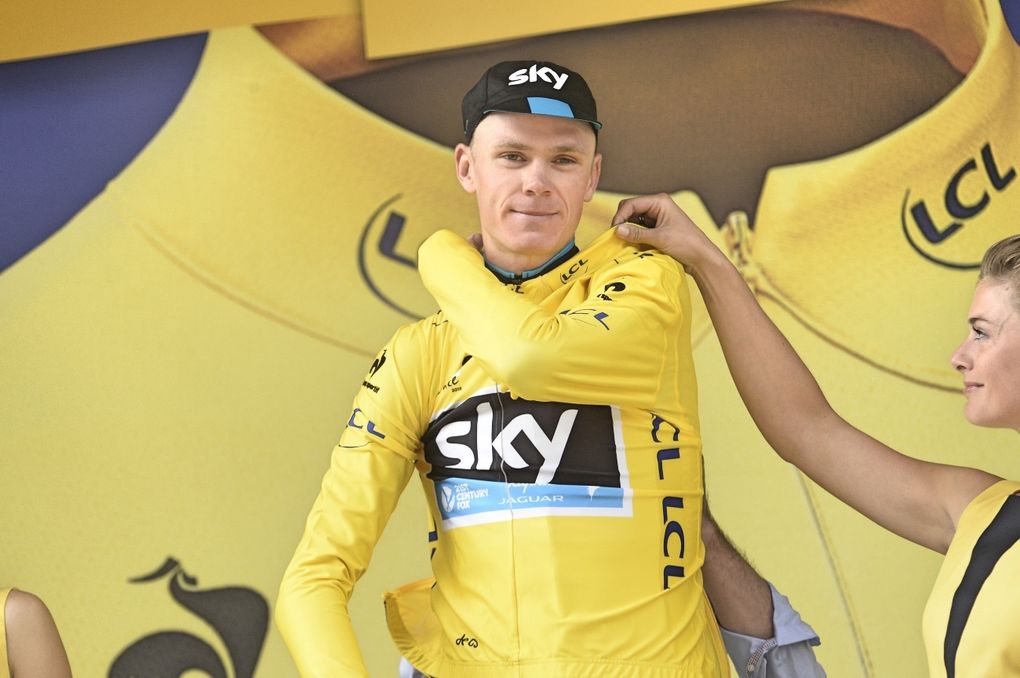
“We have realised the energy of winning the Tour de France,” says Kinjah. “It’s slowly coming to us – there are more and more people talking about the Tour, you see there is more correct reportage from the local media, talking about the right things and researching as much as they can about Chris Froome and the Tour de France and why it is so popular in Europe.
“They are putting some nice stories across and for that reason more people get to find out what’s happening. There’s also more coverage on the television and you see from South Africa all the way to Egypt and East Africa, it’s something a lot of people are looking at. The yellow jersey, the polka dot jersey, even the green jersey, they are getting to know what it means.”
While African riders may now be achieving previously unimaginable success on a world scale, Kinjah believes the future is even brighter for the continent, with the success of Froome, Impey, Teklehaimanot and co inspiring young riders to become the stars of tomorrow.
“There are ten-year-olds, who in five years’ time will be training and they already understand what the yellow jersey means,” says Kinjah. “They could be riding in Europe when they are 20. I think it’s only a matter of time there will be a few more big races in Africa. Maybe by the time Chris Froome is done with serious competition he will come back home and push it all. There’s a lot of possibilities that I hope will be realised.”
There is, as with all developing sports, work still to be done – particularly in a country where long-distance runners like Wilson Kipsang and Florence Kiplagat dominate the sporting headlines. Kinjah admits it means some talented cyclists may already be slipping through the net, but it isn’t a situation he – or Froome – expects to last forever.
“We have some talents losing out who will not get to fulfill their potential, but, as Chris Froome squarely put it, cycling in Africa – and East Africa in particular – is going to stand up some time in the future and do well,” says Kinjah. “This alone is a huge motivation, starting with Kenya.”
How, then, did a young Froome make his way to the top of world cycling? What marked him out from the rest, with Kenya and Africa an unlikely starting point for a two-time Tour de France champion? The answer, Kinjah says, is still evident in Froome’s riding today – the grit, the determination, and the drive to prove his doubters, retractors and rivals wrong.
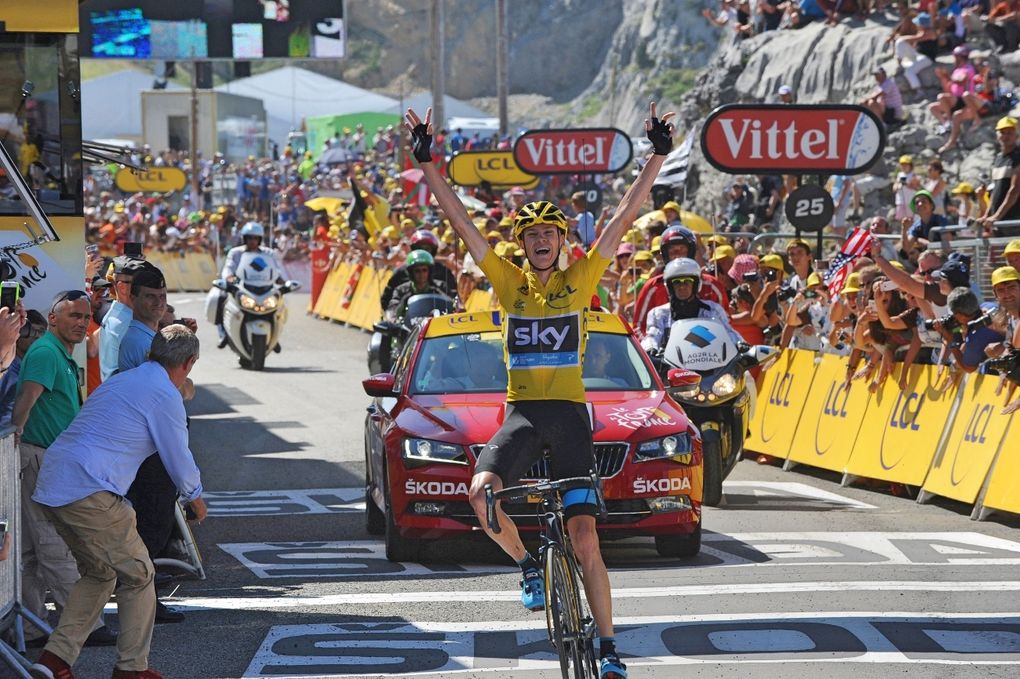
Nairo Quintana, Alberto Contador and Vincenzo Nibali were among the riders Froome left behind as he launched what proved to be a decisive, stinging attack in the Pyrenees at the Tour de France, but they were far from the first to receive such treatment.
You have to wind the clock back a decade to 2005, when Froome was 20, to see the early evidence of what was to come, Kinjah says. And Froome, riding as an amateur, won a stage of the Tour of Mauritius for the first time.
Despite Froome’s stage win, Mauritian favourites Yannick Lincoln and younger brother Christophe, backed by fierce local support, combined to win both the yellow jersey and white jersey of best young rider – with Kinjah confessing the ‘outsider’ would have been stopped at all costs.
But rather than bow to the pressure applied by the Mauritians, Froome returned a year later as a team leader and left nothing to chance on the road.
“Things changed quite quickly, especially after 2005 when he went to the Tour of Mauritius,” Kinjah recalls. “He came back and he said, ‘Kinjah, those friends you have in Mauritius, they are not good guys!’
“I asked why. He meant the Lincoln brothers, Yannick and his younger brother Christophe, who were the top riders in Mauritius. When he was there racing with the South African team, they worked together to keep the yellow jersey and the white jersey and Chris thought there had been some foul play.
“And he said, ‘I’m going to go back there, and when I hit them it will be so hard they won’t know what hit them. I’m going to go back there next year, and I’m going to train so hard I won’t even be targeting the white jersey – it will be for the yellow jersey.’
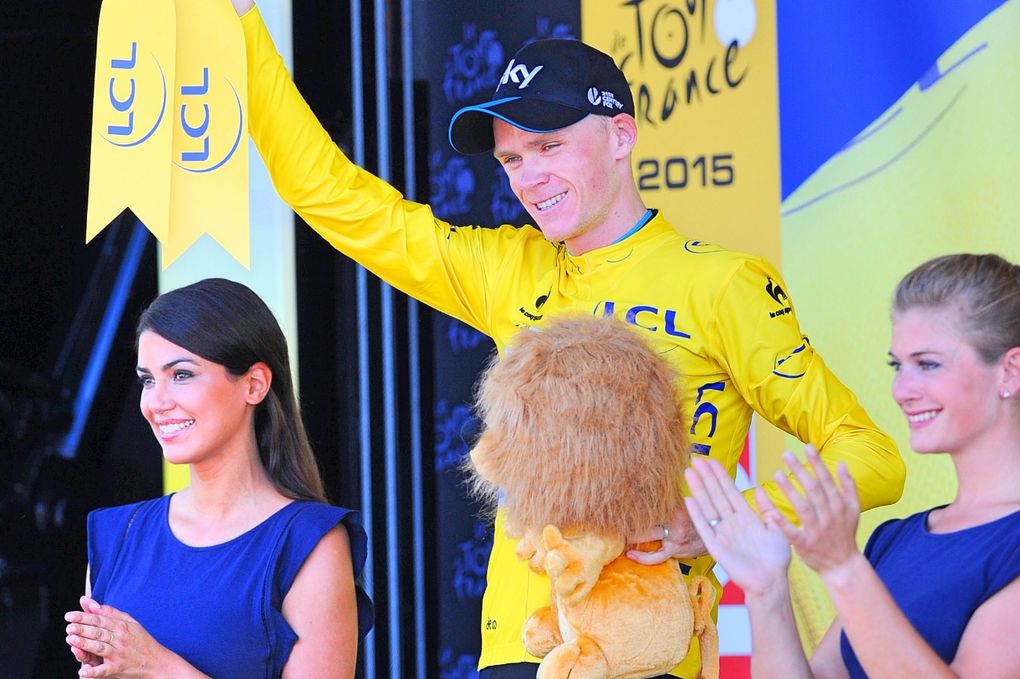
“I told him, they will gang up on you, the Mauritians will not let you win anything. But he said he was serious: ‘they played some dirty games and I’m going to train so hard that even with dirty games they won’t win it.’
“So he went back, as leader of the team, and he kicked those guys. I remember a Mauritian friend phoning me and saying, ‘Kinjah, your boy’s crazy!’
“A Mauritian rider had been talking shit, and Chris looked back, in yellow, and said to him, ‘Watch your mouth,’ and just rode off up the hill! You can see this is the kind of thing he grew up with. He does not accept defeat. He will go back and make sure he comes up stronger. You can see there isn’t much difference between now and then in that respect.”
Froome won two stages of the Tour of Mauritius that year, as well as the general classification in the first of many triumphs to come. It’s that will to win which will fuel Froome’s bid for the Vuelta – a race in which has twice finished as runner-up, in 2011 and 2014.
Should he succeed it will be the Vuelta a Espana and the red jersey, not the Tour de France and the yellow jersey, making news headlines in Africa. Victory in Spain would put Froome in the record books as only the third rider in history to win the Tour and Vuelta in the same year, after Jacques Anquetil (1963) and Bernard Hinault (1978).
Less than a month after the Vuelta finishes, Kinjah will be doing his own bit to inspire a future generation of cyclists in Africa with his Cairo to Cape Town world record attempt. The multi-national team of seven – which will also include Nick Bourne, organiser of the popular Tour of Wessex sportive – will ride the entire route as a team time trial in a bid to cut the record to 34 days (from the current mark of 42) at an average of more than 300km a day.
But in typically understated fashion, the man whose love of cycling helped unearth one of the sport’s biggest talents says his motivation is far more simple than just a place in the record books.
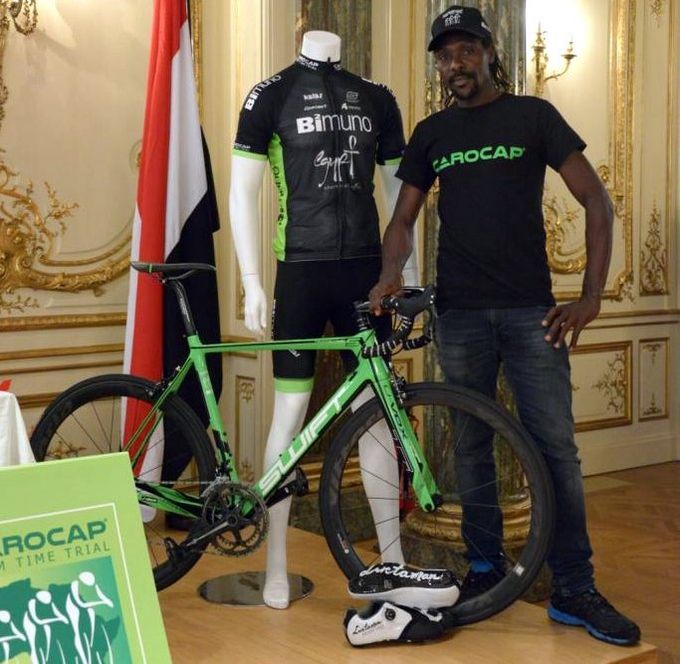
“Africa is a huge continent with huge potential so why not do this crazy thing?” Kinjah says.
Crazy? Maybe, but Froome is the evidence of what can be done when, through inspiration, potential is realised. He may now ride as a Briton under the Union Jack, but Froome is proud of his African heritage.
And British and Kenyan fans alike have the ‘crazy’ Kinjah to thank for his part in unearthing one of the biggest Grand Tour talents of the modern era.

